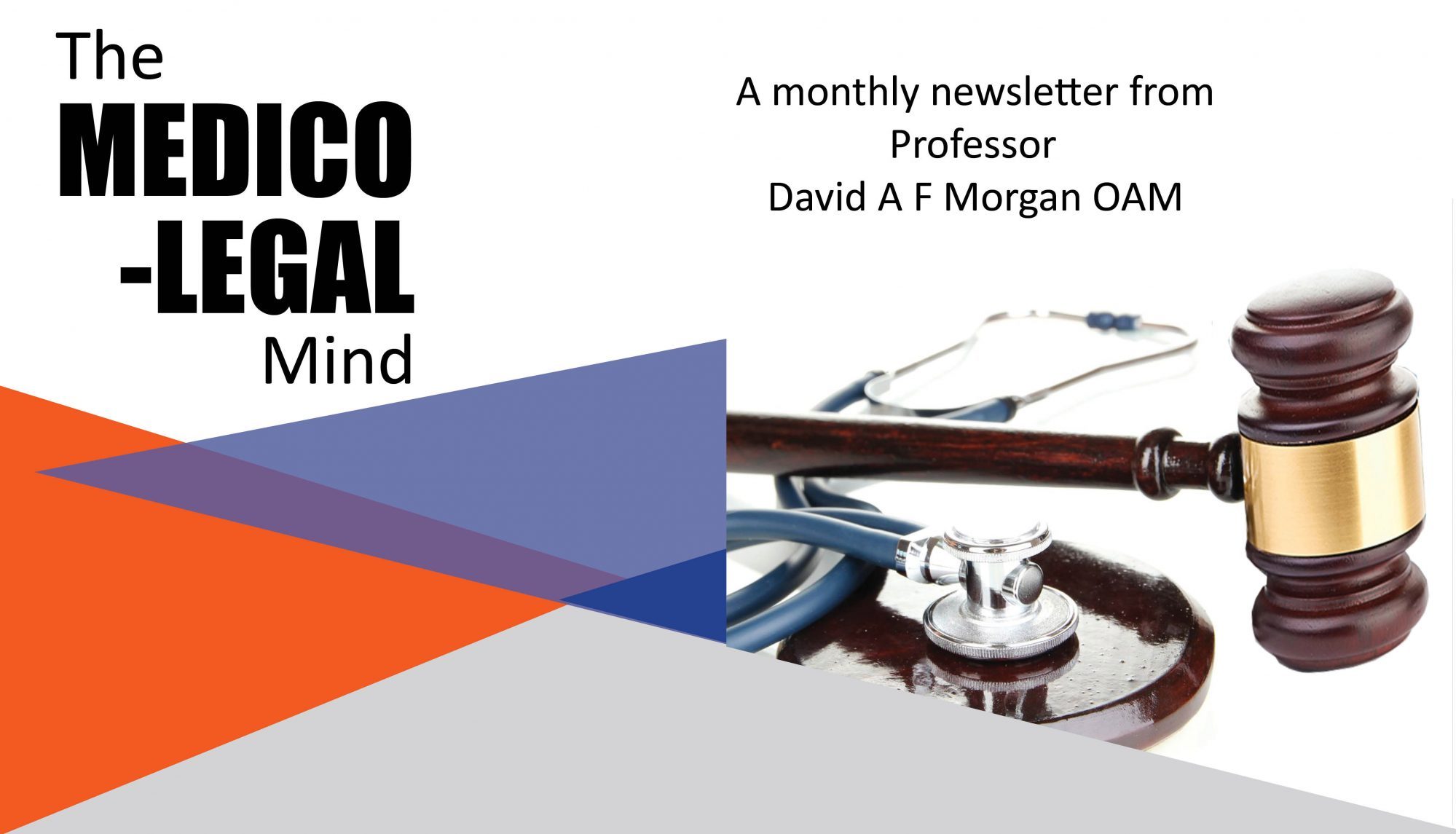LEAD ARTICLE – MAY 2019
Most Experts Are Not Expert In Everything
This is a relatively common theme, and one upon which I have previously touched. It is generally accepted that specialists should stick to their own specialties. In fact, there are some specialties that have quite precise subspecialties that may give rise to further sensible exclusions.
In orthopaedics for example, we do have specialists who deal with the hand, the spine or the foot and ankle only. Whilst most orthopaedic surgeons can give a cogent opinion on these various anatomical regions and their maladies, there will be times when a subspecialty opinion should be sought. This is most apparent when future therapeutic requirements are being canvassed. Whilst a general orthopaedic surgeon can understand and explain the concepts of an orthopaedic condition that follows an injury, he or she may not be so confident about the latest trends in therapeutic regimens.

This conundrum is even more obvious when we see specialists, say in neurosurgery, commenting upon shoulders or knees. As absurd as it may seem, there is one chap that does sometimes stray that far afield. Occupational Physicians also try their hand in orthopaedic waters and frequently give misdirected advice. Whilst Cardiologists may have done an orthopaedic term or two as a medical student or a junior house officer, it is highly unlikely that commentary upon a spinal condition would be of any use to the Court.
That then leads me to the divide between orthopaedic surgery and psychiatry. I do not know of a single orthopaedic surgeon who would be confident about discussing psychoses. Neuroses however, may be a different subject matter. As surprising as it might seem, orthopaedic surgeons are human beings. They do understand that plaintiffs have suffered physical and emotional loss, are often financially compromised and also lose the benefits of consortium. This results in frustration, anger, resentment, embellishment and overreaction.

It is therefore tempting for the orthopaedic surgeon to stray into this field and attempt to explain a set of clinical symptoms that do not normally fit with an orthopaedically recognisable pattern.
In general terms, I do not do it. I can just imagine being cross-examined by a fierce barrister testing my knowledge on some form of post-traumatic stress disorder. Short of retreating to my own psychological difficulties, I would have no baseline upon which I could support an opinion. In essence therefore, it is better that experts stick to their true area of expertise.
